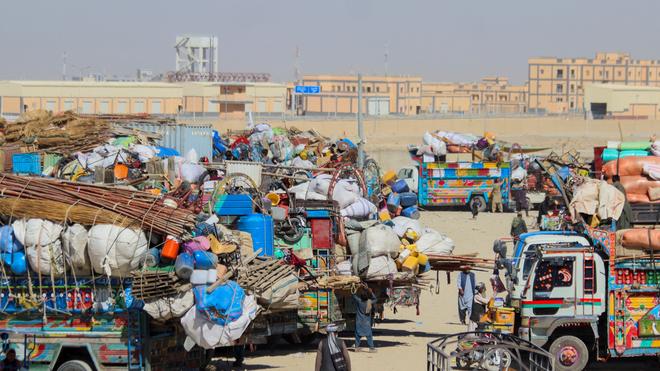Kabul/Islamabad – Tensions between Afghanistan and Pakistan have escalated sharply after Afghan officials claimed that 58 Pakistani soldiers were killed during heavy cross-border clashes this week. The fierce exchange of fire has led to the closure of the Torkham border crossing, a key trade and transit route between the two countries.
According to the Afghan Ministry of Defense, fighting broke out after Pakistani forces allegedly carried out “unprovoked shelling” near the Nangarhar border region. Afghan forces reportedly responded with “full force,” resulting in significant casualties on the Pakistani side. The ministry claimed that dozens of Pakistani troops were killed or wounded, while several border outposts were damaged.
“This aggression will not go unanswered,” said an Afghan government spokesperson in Kabul. “Our forces acted in self-defense and will continue to protect our sovereignty.”
Pakistan’s military, however, strongly denied the Afghan claims, calling them “baseless and misleading.” In a statement, Pakistan’s Inter-Services Public Relations (ISPR) said that only a few soldiers had been injured and accused Afghan forces of initiating the clashes. “The responsibility for this escalation lies squarely with Kabul,” the statement read, adding that Pakistan reserved the right to respond if attacks continue.
The Torkham crossing, one of the busiest trade corridors between the two nations, has been shut down indefinitely, disrupting the movement of goods, fuel, and travelers. Hundreds of trucks loaded with perishable items are stranded on both sides, and traders have warned of mounting losses if the closure persists.
The border has long been a flashpoint in Afghanistan–Pakistan relations, with frequent skirmishes over territorial disputes and cross-border militant activity. Relations deteriorated further after the Taliban’s return to power in 2021, with Islamabad accusing Kabul of harboring militants from the Tehrik-i-Taliban Pakistan (TTP), a group blamed for multiple attacks inside Pakistan.
Analysts say the latest clashes could deepen mistrust between the two neighbors and complicate regional stability efforts. “This is not just a border skirmish — it reflects the breakdown of communication and coordination mechanisms that once helped prevent such confrontations,” said a South Asia security expert.
Efforts to de-escalate are underway, with reports suggesting that Qatar and China have reached out to both governments urging restraint. The United Nations has also expressed concern over the situation, warning that continued hostilities could impact humanitarian operations in the border regions.
For now, the closure of the Torkham crossing and the competing casualty claims have left relations at one of their lowest points in recent years — with neither side showing signs of backing down.

